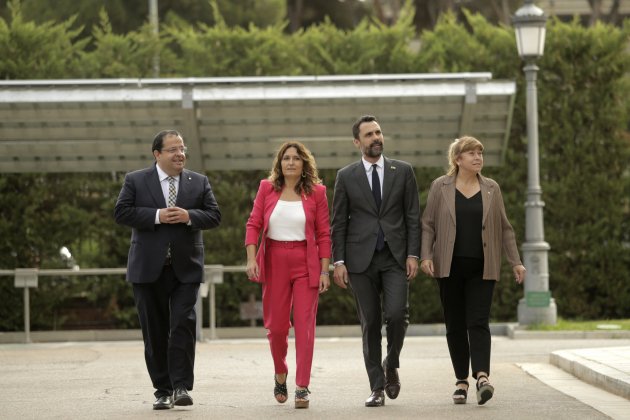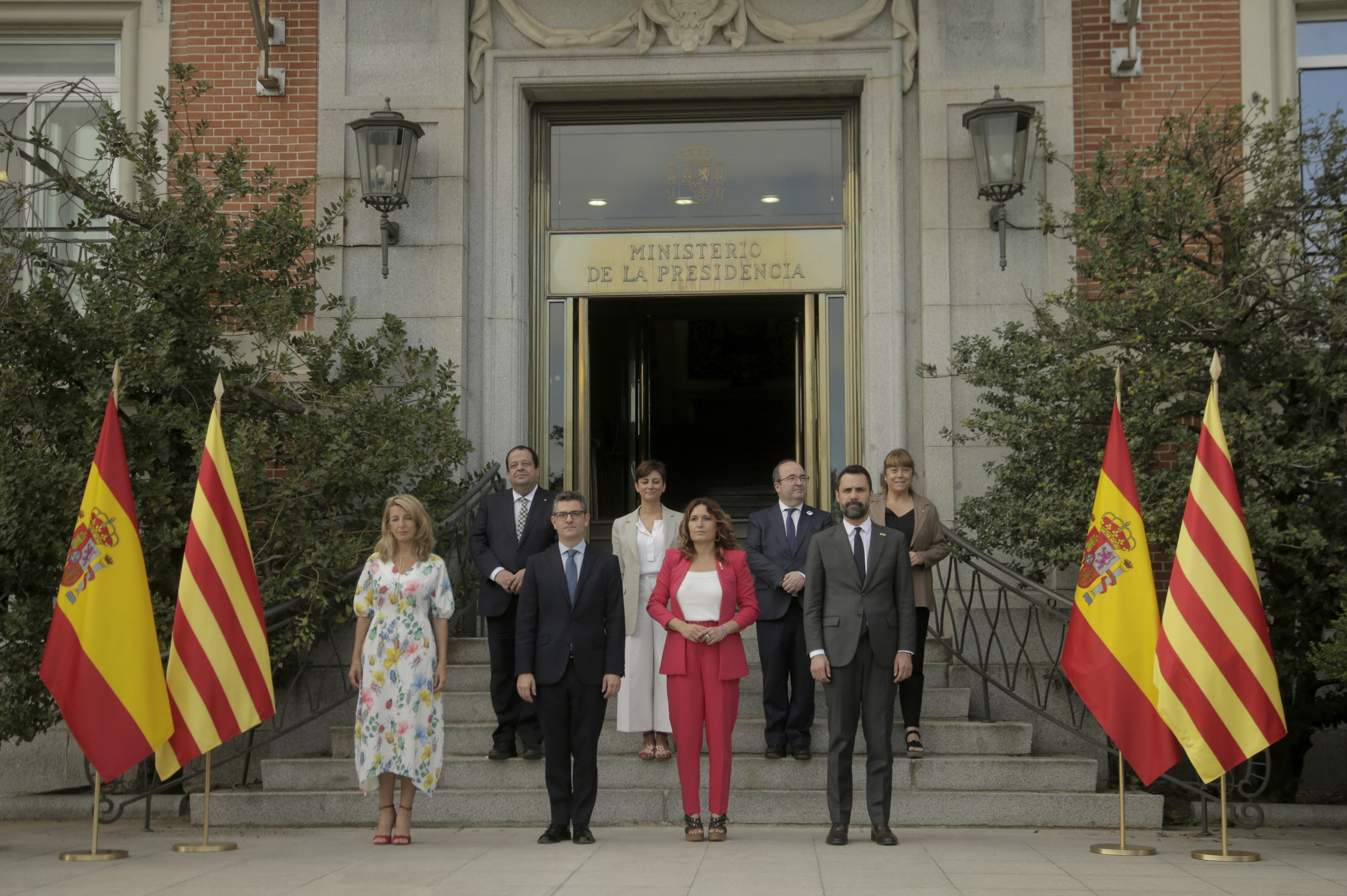The third meeting of the dialogue table on the political conflict over Catalonia, held this Wednesday morning, ended with framework agreements on two issues: firstly, the dejudicialization of politics with the legislative reforms necessary to harmonize with Europe; and secondly, the protection and promotion of the use of Catalan. There was an insistence from both sides on the need to put an end to the judicialization of politics with regard to the Catalan independence issue, but the documents that were signed do not specify how this will be broached. The Spanish minister for the prime minister's office, Fèlix Bolaños, avoided giving any detail on the approach to this issue while underlining that it involves "doing politics with capital letters, committing ourselves to dialogue and agreements". On the other hand, the Catalan presidency minister, Laura Vilagrà, emphasized that the legislative reforms, the reform of the Spanish Penal Code, should be presented before the end of this year. She asserted that the parliamentary majorities to achieve the legislative reforms are present.
Bolaños and Vilagrà appeared separately at the end of the nearly two-hour meeting held at the Moncloa palace in Madrid. It was a meeting where both delegations arrived with the work practically done. The first to speak of the agreements that had been reached was the Spanish minister, who emphasized that the accords provide for "overcoming and putting an end to the judicialization of politics". This, he said, must be translated into "doing politics with capital letters, committing to dialogue and agreements". Speaking of the legislative reforms to be carried out, Bolaños made it clear that they must always be reached "within the current democratic order" and "within the established framework for reform". "Actions that take politics outside the rules of the democratic game are renounced", the minister stressed.
From the Catalan side, Vilagrà said she was convinced that there is a majority in Congress to be able to pass the necessary "legislative reforms" between now and December. This implies modifying the Spanish Penal Code, to reform the offence of sedition. This route, in Vilagrà's opinion, would serve to benefit those who have court cases open which are linked to the Catalan independence process.

The defence of the Catalan language
The other framework agreement was on language, an issue which initially was not part of the dialogue table. As the minister Vilagrà explained, the Spanish government is committed to supporting the current legislative framework - that is to say, the reforms approved by the Catalan Parliament in recent months following the court ruling imposing a 25% Spanish quota in Catalan schools - as well as agreeing not to impose language percentages and to "bury" the on-going battle being conducted by the judiciary against the Catalan linguistic model.
Also in the area of language, the dialogue table agreed to revise the Spanish Senate's regulations to ensure that senators can use Catalan when speaking in the Spanish upper house, as well as pushing for Catalan to be a "language of use" in the European Parliament. These points, Bolaños pointed out, can be extrapolated to the Basque and Galician languages if the governments of those communities request it.

